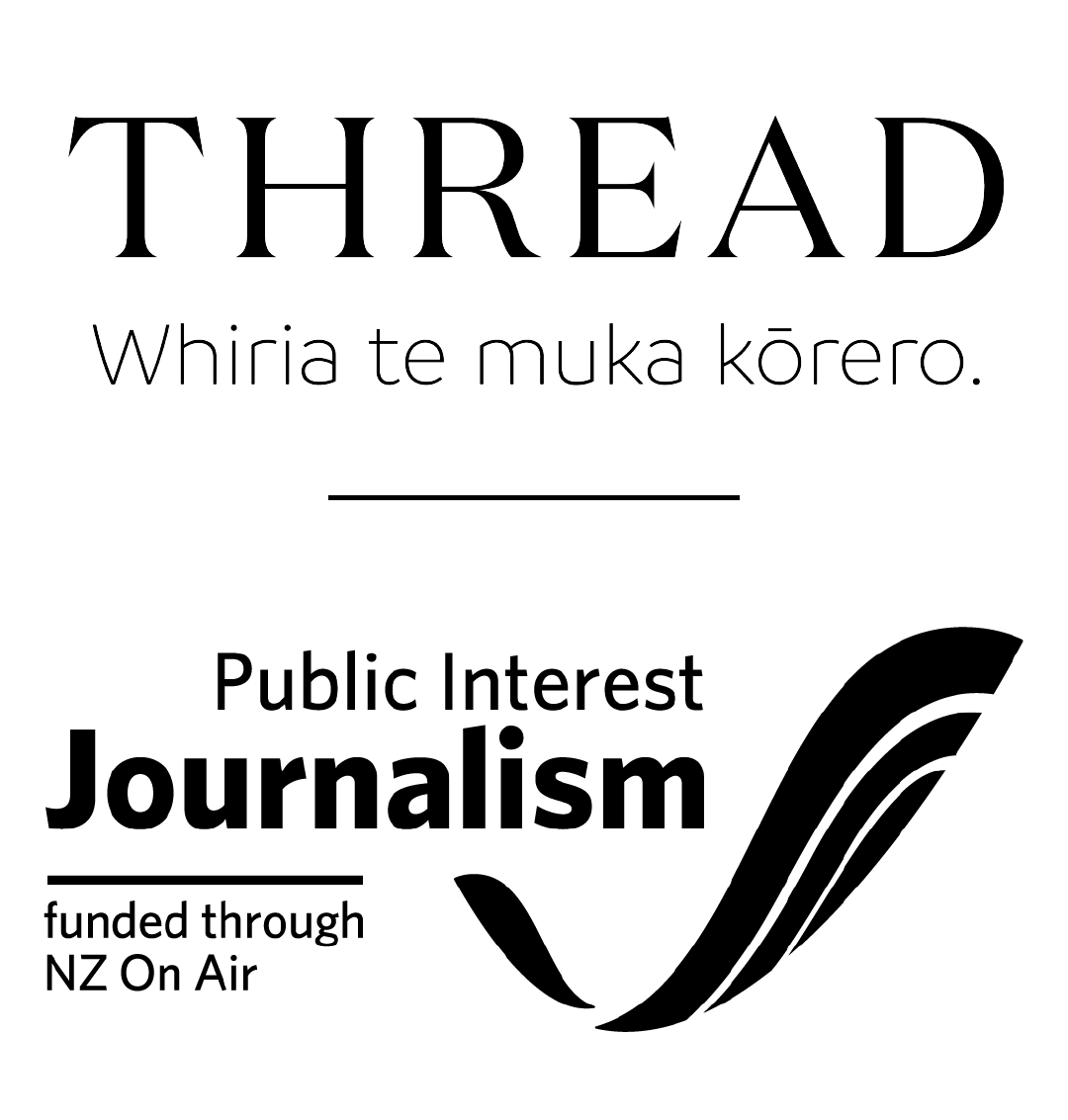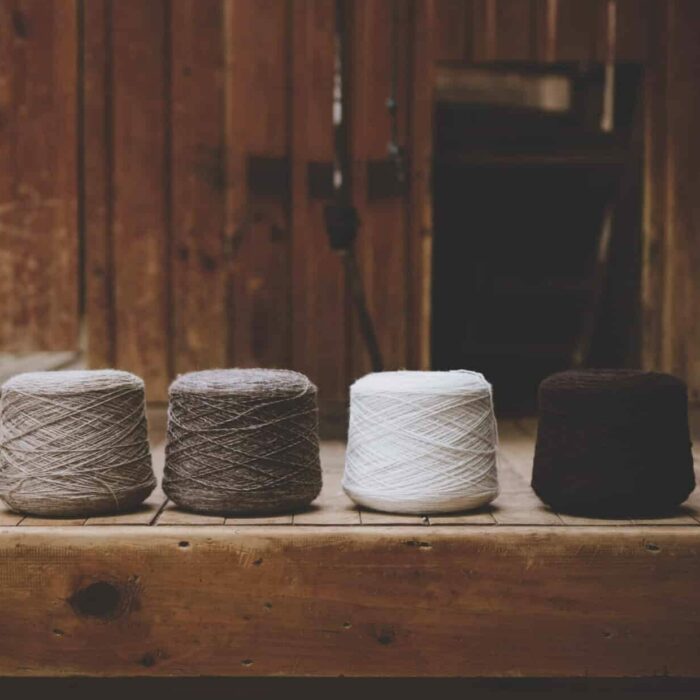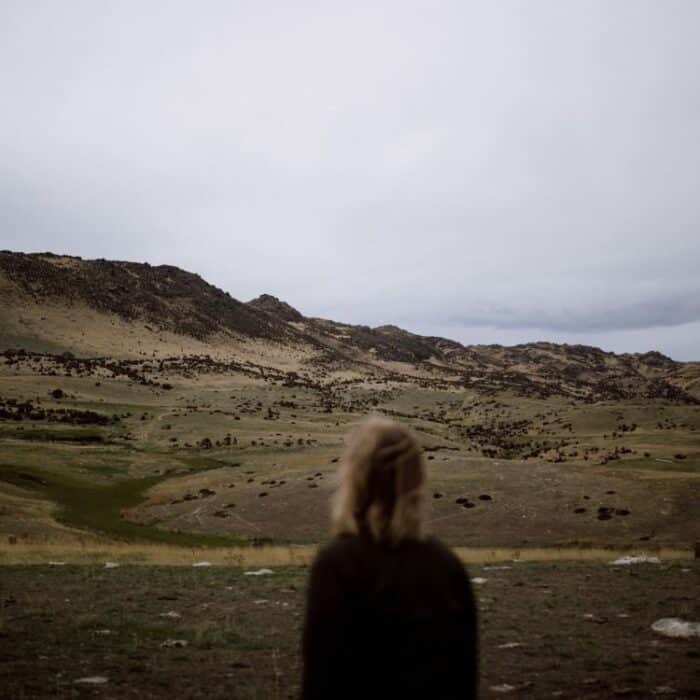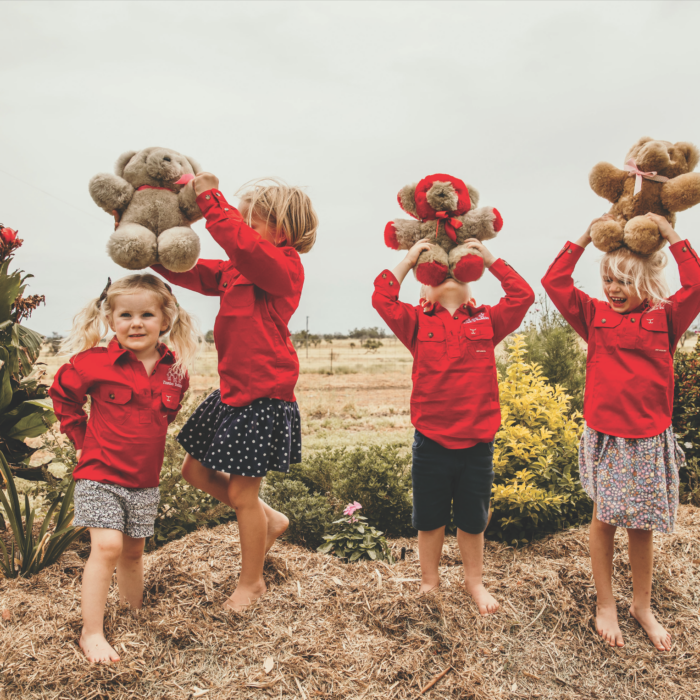
After I had Alice, I was critically unwell – just so out of the blue. I’d never had any mental health issues before. My bipolar disorder manifested as a manic episode first. I had a really traumatic birth, which is what they think triggered it. I was wired – I didn’t sleep for nine days. I’d sneak out of bed, feed Alice, then spend hours researching or reading. I thought, This is just so easy. I’m nailing it.
But as the days went on, I became really emotional, and was obsessed with my appearance. I bought ten cardigans in a sale, because I decided that cardigans were what mums wore. I remember thinking, I’m so thrifty! The thing with a manic episode is it’s about you – my focus was on me, not Alice. Your brain is going a million miles an hour. I was talking fast. I’d have tantrums and run away. My obstetrician urgently got me into the system – the maternal mental health crisis team. It took a good six weeks of medication, and I had nurses at home day and night looking after me and Alice.
At the end of the manic episode the psychiatrist said, “We’re diagnosing you with bipolar disorder, and unfortunately what goes up must come down. There will be a depressive episode coming.” I went to sleep one night and the next morning, it had arrived. It was severe, like someone was lying on my body. I had quite a few episodes of that. So yeah, the first six months of Alice’s life were pretty horrific. I said to Nick, “We can’t go through that again.” But Christchurch has a really good maternal mental health team. A lot of my fears were reduced, and they supported us to have Henry, which was amazing.
At the beginning of last year, I saw a few women speaking about being an entrepreneur with an ADHD diagnosis. Things started clicking. I recognised all these things I had put down to being lazy, undisciplined, or just easily distracted – in my mind they were negative parts of my personality. I started doing focus groups with women with late diagnosis of ADHD and realised, “That's me.” My ‘derailers’ were: impulse control, listening, and getting things done. If tasks weren’t giving me that dopamine hit, I wouldn’t do them. I can come up with a ten-year business plan, but previously I couldn’t implement it.
I saw a psychiatrist, and within half an hour he was like, “I don’t know if we need to go much further. You absolutely have ADHD.” That was late last year, and I was prescribed medication. The minute I took it, everything just slowed down. I could talk; manage my thoughts; get tasks done. It was incredible. The medication really helps me do the little tasks. We go away camping in our caravan a lot, and now my husband notices that everything’s organised. That’s never happened! He’s blown away that this could be the new me.
There’s a much higher rate of ADHD diagnosed among creative women and female entrepreneurs. Some ADHD traits – creativity and thinking outside the box – lend themselves well to those types of roles. Amazingly, the medication doesn’t take those things away. It fixes the derailers but doesn’t change that creative part.
If I hadn’t already met women with this diagnosis, I would have found it quite distressing, but I’d seen these women from all walks of life doing amazing things. It was so much easier to accept my diagnosis. I felt like I could use parts of my personality for good and treat the parts that were derailing me. A diagnosis is not your identity – whether that’s diabetes, arthritis or schizophrenia.
Late-stage diagnosis for women is common because things start coming out, derailing their self-esteem or triggering depression. A lot of women genuinely feel like they’re failing – there’s shame around it. So, when someone says, “It’s not you. You’ve just got this condition, and it can be treated this way,” that’s pretty cool. There are some good ADHD surveys that you can do online. Talking to your GP is the first step. If medication is a consideration, you need a referral to a psychiatrist for a diagnosis. For women who may be isolated, an online community can be powerful. You can get a lot of comfort from connecting with ADHD women on Instagram. Listening to a podcast can make you feel more connected.
I’ve got to the point where I feel safe in terms of what I share and how I share it. I’ll continue to do that in the hope that women see it and feel like there is hope for them. I just have to show people that life can be okay, and you can use your experience for good.
Hannah is the founder and CEO of the KITE Program, a resource to support people on their own mental health journey.

This story is part of THREAD, a year-long project by Shepherdess made possible thanks to the Public Interest Journalism Fund through NZ On Air.
Related Stories

Out Now
Seventeenth Edition
Our beautiful Ngahuru Autumn 2024 Edition is out now!



